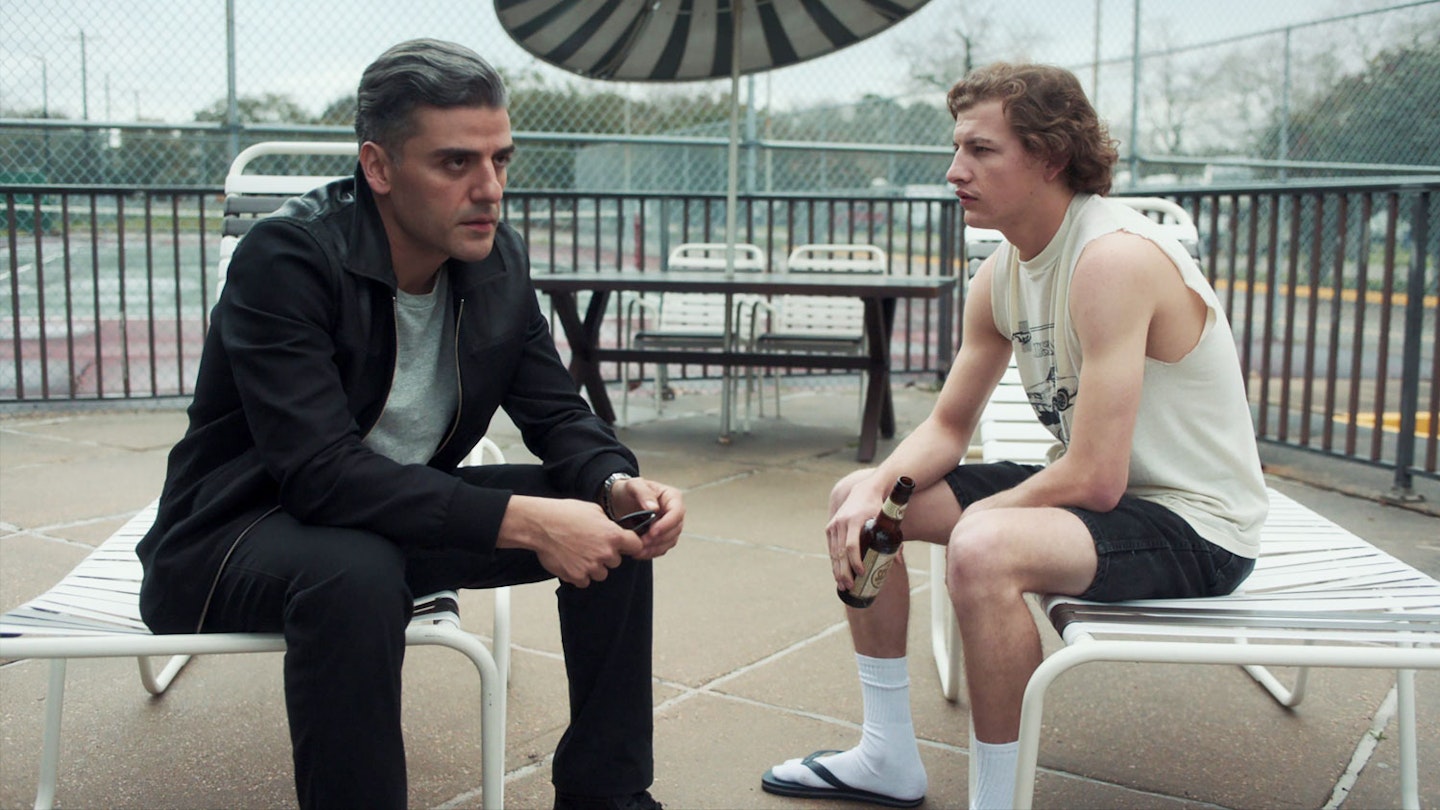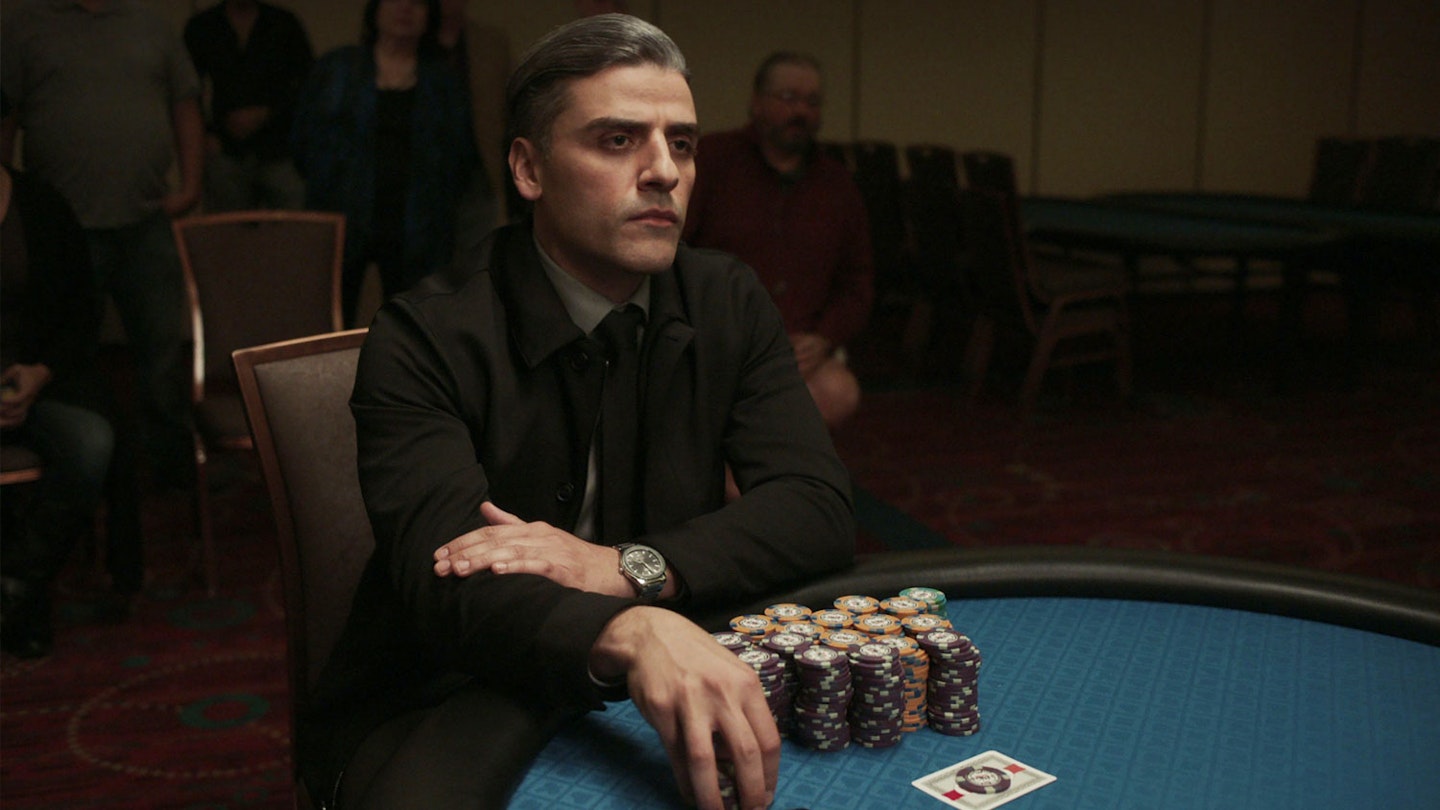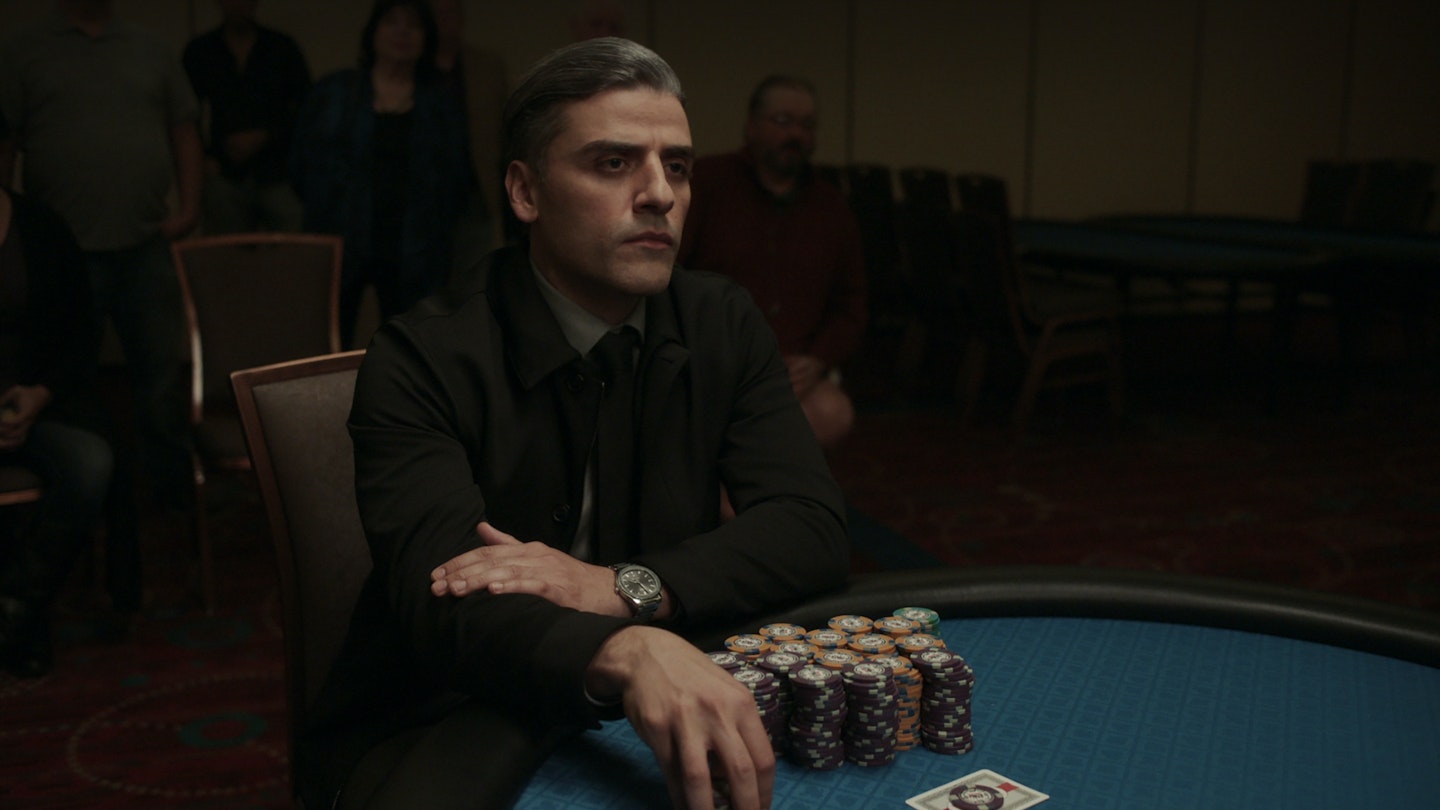Aptly enough, The Card Counter is a film that keeps its cards close to its chest. What is this slow-burn study of a soldier-turned-gambler really about? Being a movie by revered writer-director Paul Schrader, it unsurprisingly centres on a solitary male loner who diarises their existence from an empty room: Oscar Isaac’s enigmatic protagonist here falls into a tradition that stretches from troubled pastor Ernst Toller in 2017’s First Reformed, all the way back to Travis Bickle in the Schrader-written Taxi Driver. At first glance, it looks like a new entry in the forgotten genre of gambling dramas: there are shades of Robert Altman’s California Split here, with Isaac decked out in a jacket straight off the shoulders of Steve McQueen in The Cincinnati Kid. But The Card Counter’s set-up turns out to be a sublime sleight of hand. The closer it gets to its pulsating conclusion, the clearer it is that this is a movie less about betting it all on black, and more about the black moral heart of America’s war machine.

Isaac is engrossing as William Tell, a former army officer trained in “advanced interrogation” (aka torture). We meet him with that life seemingly long behind him: as the film inches forward, we learn that he served jail time for posing for a photograph while humiliating a prisoner in a Guantanamo-like facility, emerging the other side a professional poker player. But clues soon emerge of a man marked by regret and a simmering lust for revenge. It was a private contractor named John Gordo (Willem Dafoe) who put him on a path towards violence but went unpunished himself, to Tell’s despair. One day, Tell meets a young college dropout called Cirk Baufort, played by Ready Player One’s Tye Sheridan. Baufort is on a mission to kidnap Gordo, and requests help from Tell. Instead, Tell attempts to put the youngster on the straight and narrow, inviting him on the road.
Reaffirms Schrader as a master of stories involving morally ambiguous men concealing ready-to-erupt inner lives
What ensues is a tense plot littered with stomach-churning flashbacks to Tell’s military days. Schrader directs with a confidence equal to Card Counter executive producer Martin Scorsese, sprinkling in evocative imagery, such as Tell covering every appliance in his motel rooms in paper (a quirk that’s never explained). He also expertly layers in subtext: one of Tell’s poker rivals is a stars-and-stripes-wearing patriot, whose chants of, “USA! USA!” echo frequently in the back of scenes, underlining this story as a treatise on American vulgarity.
The film has a few more blemishes than the near-flawless First Reformed. Tiffany Haddish has a somewhat thin role as Tell’s love interest, with the pair’s chemistry never quite igniting. But as a challenging inquiry into the degree to which we can absolve ourselves of our past sins, it reaffirms Schrader as a master-crafter of stories involving morally ambiguous men concealing ready-to-erupt inner lives. In 2002, Spike Lee released 25th Hour — since championed as one of the defining movies of the September 11 attacks, despite being on the surface a film about something else entirely. The Card Counter might just be the Iraq War’s equivalent — capturing the guilt and ugliness of that conflict, if not the events themselves.

